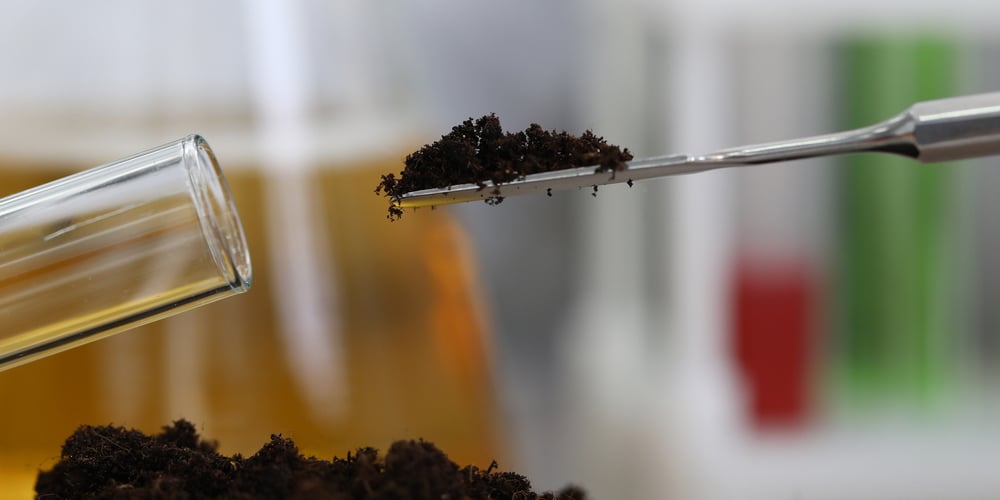Blackberries are a delicious summer fruit that is easy to grow and enjoy yearly. It’s no wonder gardeners love these resilient plants. If you have one, or you’re considering one for your yard, you’ll need to know some basic care requirements, including what kind of soil they prefer. This article will answer the question ‘do blackberries like acidic soil?’
Soil Requirements for Blackberries
Blackberries generally aren’t too fussy and will do well in neutral to slightly acidic soils. Most gardeners report that these plants have an acceptable pH range from 5.5 to 7.3.
How To Test the pH Level in Your Soil
Testing your soil isn’t hard to do, but you will need a few supplies and instructions. Depending on which kit you choose, the directions can vary, so make sure to read each step carefully to get an accurate reading.
Here is an example of what testing your soil looks like:
- Dig a hole with a clean shovel about four inches deep.
- Clear any debris, such as stones or twigs, out of the hole.
- Fill the hole with distilled water.
- When the water is sufficiently muddy, you insert the test probe and wait for a reading.
This method is likely the easiest way to test your soil, and most test kits are inexpensive. You can find them online or at most local garden supply stores.
How To Adjust pH Levels in Soil
After testing, you may need to adjust your soil before putting in your blackberries. Most often, you will need to lower the pH level of your soil, which means you will need to make it more acidic.
There are a few different ways you can do this, and it’s not difficult to find the materials you need in most garden supply centers. Here are the preferred options:
- Aluminum sulfate
- Elemental sulfur
- Sulfuric acid
Picking one will depend on a few factors, including how large the plant is, the soil’s make-up and density, and how quickly you need to change the acidity.
Why Do pH Levels Affect Plants?
It might seem strange that the acidity of the soil can affect a plant, especially if all the other necessary factors for growth are there. Acidity and alkalinity have a more significant impact on living organisms than you might realize.
The term pH stands for potential hydrogen. Hydrogen is the most abundant element we know of, so it makes sense that fluctuations in this element can significantly impact entire organisms. Soils that are highly alkaline or acidic tend to lack the essential nutrients that certain plants need.
There are also microorganisms to consider that are essential for plant growth. Not all of these organisms can thrive in environments that are extreme in either measure. Fortunately, blackberries are forgiving and will tolerate a fairly wide range of soils.
What Other Requirements Do Blackberries Have?
Other than soil acidity, there are a few other requirements for growing blackberries. Below are a few of the other ways you can help these plants thrive:
- Well-drained soil. Sandy or loamy soils work well with this plant.
- Plenty of direct sunlight.
- Each plant should have three to five feet of space for optimal growth.
- Regular water is required, primarily through the hottest months.
- Blackberries can thrive in zones five through eight.
- Some blackberries prefer to climb, while others can support themselves.
Final Thoughts
Preparing a space for your blackberries doesn’t have to be difficult, especially when it comes to getting the soil ready for planting. Whenever possible, you should try to have the soil ready for planting before you actually put your blackberries in the ground.
Once you have the soil ready for your blackberries, you can look forward to the harvesting season.

